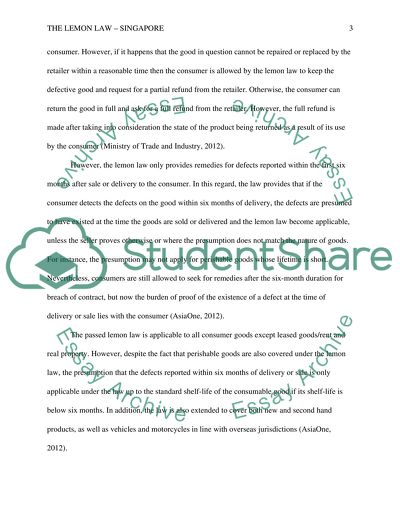Cite this document
(“Business Law: The Lemon Law - Singapore. 1)Explain this new law 2) Essay”, n.d.)
Business Law: The Lemon Law - Singapore. 1)Explain this new law 2) Essay. Retrieved from https://studentshare.org/law/1468097-business-law-the-lemon-law-singapore
Business Law: The Lemon Law - Singapore. 1)Explain this new law 2) Essay. Retrieved from https://studentshare.org/law/1468097-business-law-the-lemon-law-singapore
(Business Law: The Lemon Law - Singapore. 1)Explain This New Law 2) Essay)
Business Law: The Lemon Law - Singapore. 1)Explain This New Law 2) Essay. https://studentshare.org/law/1468097-business-law-the-lemon-law-singapore.
Business Law: The Lemon Law - Singapore. 1)Explain This New Law 2) Essay. https://studentshare.org/law/1468097-business-law-the-lemon-law-singapore.
“Business Law: The Lemon Law - Singapore. 1)Explain This New Law 2) Essay”, n.d. https://studentshare.org/law/1468097-business-law-the-lemon-law-singapore.


